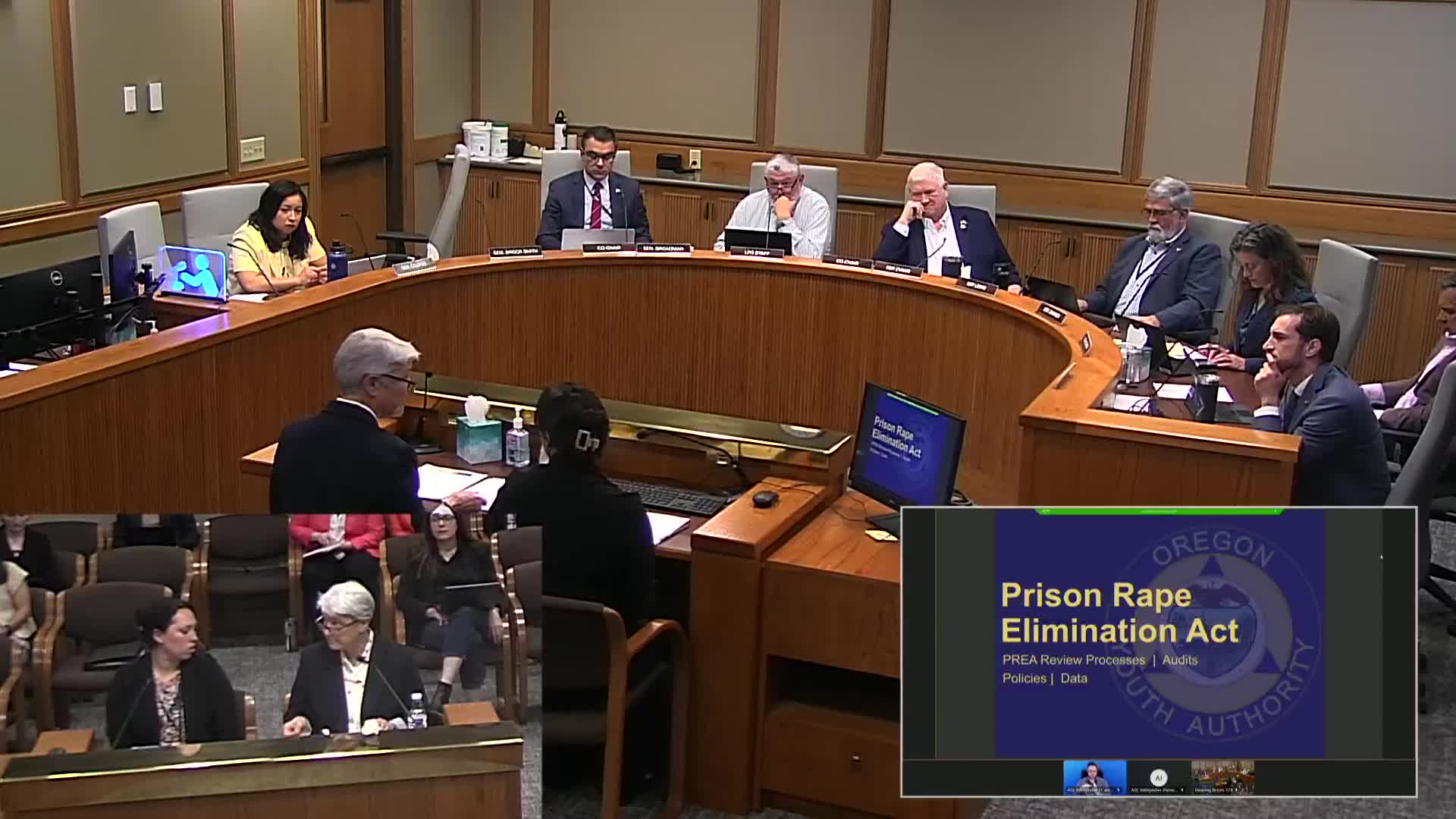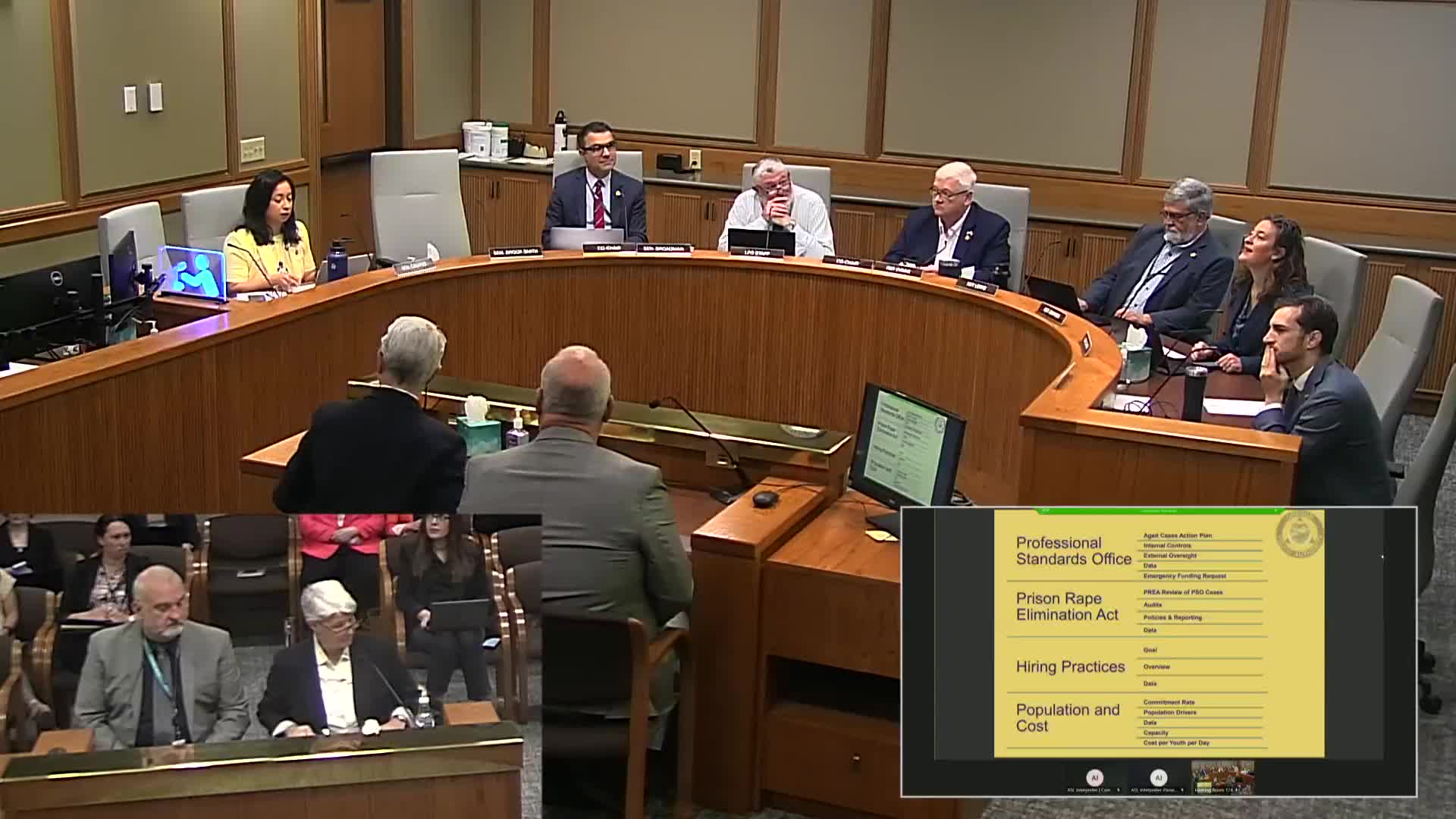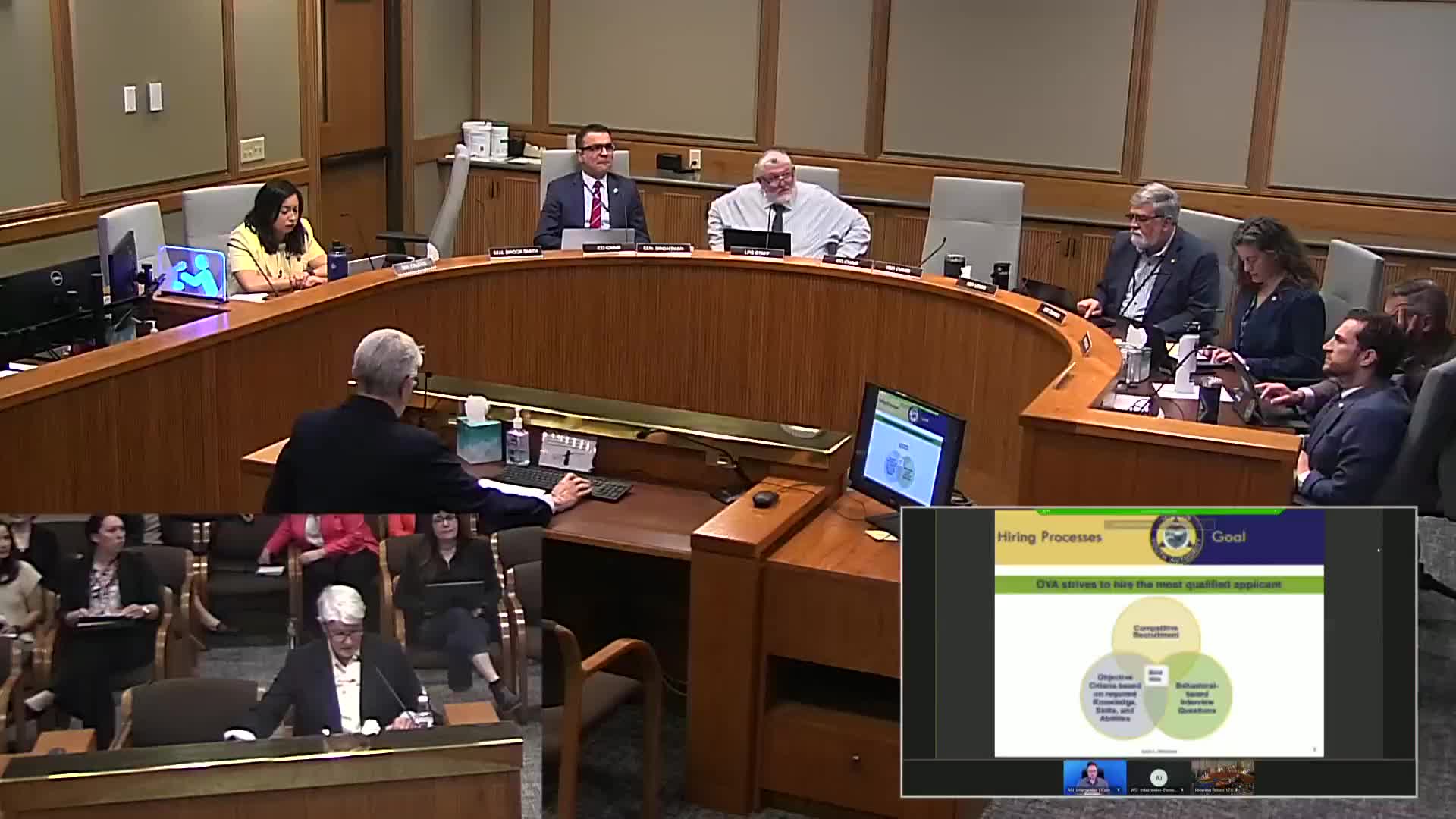Article not found
This article is no longer available. But don't worry—we've gathered other articles that discuss the same topic.

OYA PREA coordinator says federal law still in effect despite resource cuts; audits, reporting channels remain in place

Oregon Youth Authority outlines progress on investigation backlog, asks Legislature for $2.4 million and six PSO positions

